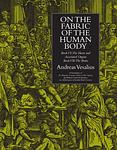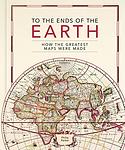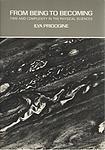The Greatest Belgian "Nonfiction" Books Since 242
Click to learn how this list is calculated.
This list represents a comprehensive and trusted collection of the greatest books. Developed through a specialized algorithm, it brings together 291 'best of' book lists to form a definitive guide to the world's most acclaimed books. For those interested in how these books are chosen, additional details can be found on the rankings page.
Genres
Countries
Date Range
Reading Statistics
Click the button below to see how many of these books you've read!
Download
If you're interested in downloading this list as a CSV file for use in a spreadsheet application, you can easily do so by clicking the button below. Please note that to ensure a manageable file size and faster download, the CSV will include details for only the first 500 books.
Download-
1. On the Fabric of the Human Body by Andreas Vesalius
"On the Fabric of the Human Body" is a seminal work in the field of anatomy, providing detailed descriptions and illustrations of the human body's structure and functions. The book, written in the 16th century, revolutionized the understanding of human anatomy, challenging the prevailing ideas of the time, which were primarily based on the dissection of animals. Its author, a physician and anatomist, emphasized the importance of direct observation and dissection of human bodies in medical education and research.
-
2. The Life of the Bee by Maurice Maeterlinck
"The Life of the Bee" is a philosophical and scientific examination of the behavior and nature of bees. The author delves into the intricate world of the hive, exploring the roles and duties of the worker bees, drones, and queen bee, and the complex societal structure within the hive. The book also discusses the fascinating process of honey production and the life cycle of bees. The author uses the bee society as a metaphor for human society, drawing parallels between the two.
-
3. Atlas by Gerardus Mercator
"Atlas" is a seminal work in the field of cartography, offering a collection of maps and scholarly texts that revolutionized the way the world was perceived in the 16th century. The author, a renowned geographer and cartographer, introduces an innovative projection system that allowed for more accurate representation of the spherical world on a flat surface. This work is not only significant for its geographical and cartographical contributions but also for its influence on the way subsequent generations viewed and navigated the world.
-
4. From Being To Becoming by Ilya Prigogine
The book explores the concept of time and its role in the physical sciences, presenting a new understanding of the universe as a dynamic, evolving entity. The author challenges traditional physics' emphasis on determinism and reversibility, arguing instead for a view of the world where irreversibility and the flow of time are fundamental to the laws of nature. Through a discussion of thermodynamics, statistical mechanics, and nonlinear dynamics, the book illustrates how the inclusion of time transforms our understanding of complex systems and leads to a new scientific framework that harmonizes the theories of classical and quantum mechanics.
Reading Statistics
Click the button below to see how many of these books you've read!
Download
If you're interested in downloading this list as a CSV file for use in a spreadsheet application, you can easily do so by clicking the button below. Please note that to ensure a manageable file size and faster download, the CSV will include details for only the first 500 books.
Download


